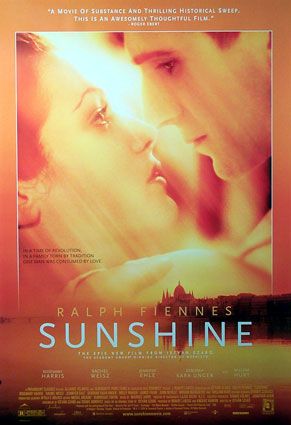
This is one of those stories that needed telling. East Prussia, this vast and beautiful region in Germany, was quite peaceful during the war until the Eastern Front collapsed and the Russians started invading Prussia and moved towards Berlin. The people living there had but two choices. Stay and face the Russians who were not exactly going to handle them with care. Or to flee and leave all their possessions behind. East Prussia was the home of many aristocratic families who lived at ease on huge estates. Theirs was a life of wealth and tradition. Leaving was extremely hard on them and for many it took a long time until they made up their minds. Too long in some cases. For those who had less, it wasn’t any easier. Not only did they have to leave everything behind, they didn’t know where they were going or if they were not going to be outrun by the Russians.
You see, a lot of potential for a great story and all of the above is shown in Die Flucht – March of Millions. Unfortunately even historical events like this need good storytelling and that’s where I’m not happy with this two-part German TV production. While it’s not bad, I would have preferred if they hadn’t decided to turn the second half into a love story.
Lena, countess von Mahlenberg (Maria Furtwängler), leaves Berlin and returns to her family’s estate in East Prussia. Things still look pretty much the same as they did before the war with the exception of French POWs – led by cranky François (Jean-Yves Berteloot) – working on the estate. And there is also a panicky feeling underneath the surface. Things do not look good for Germany. That they will win the war is not very likely anymore and what this could mean for them, this close to the Eastern front, starts to dawn on a few people.
The von Mahlenberg’s are friends with another aristocratic family, the von Gernstorffs. Lena is going to get married to their older son although she doesn’t really love him. The younger son who is in love with her as well, is one of the only ones to clearly say that Germany will lose the war. He is fighting on the Russian front and scared of dying. When he deserts, the family breaks apart.
Meanwhile Lena wants to flee together with the POWs who have been working for her and with all of the people who live on the estate.
The first part of the movie is dedicated to the time before they flee, the second focusses entirely on that long march.
Many of the elements are interesting and dramatic. The tensions among the Germans, the justified fear of the Russians, the tragedy to lose your home and to be unwelcome wherever you go, is shown quite well.
What I liked too were the pictures. I have never been in East Prussia but those vast landscapes seem very beautiful and they were beautifully filmed. What did not work is the love story. I think this movie could have been dramatic without a love story but on top of that it didn’t seem very realistic.
In any case, a watchable movie but not as good as I had hoped for. I think however this would be successful in the US or the UK as, like Dresden or Anonyma, it shows aspects of German history and suffering we sometimes tend to forget. Of the three movies I liked Anonyma best but I’m fond of Dresden as well, although it has corny elements.
I’m not sure Die Flucht is available in English. I attached the German trailer and for those interested in the history of East Prussia during WWII, a documentary in English which looks quite good.



